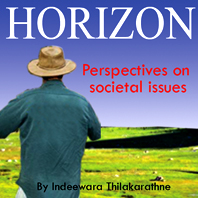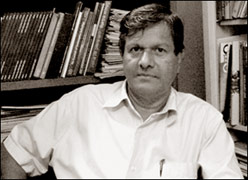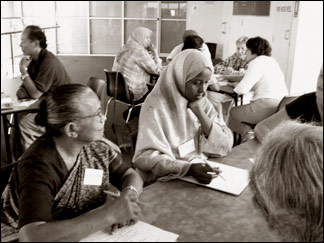Unequal
global order and population movements
 There is ample evidence to demonstrate that global inequality has
increased over the last several decades, thanks to neo-liberal economic
policies adopted by governments across the world. Countries and regions
that have achieved high rates of economic growth naturally have higher
concentrations of wealth. There is ample evidence to demonstrate that global inequality has
increased over the last several decades, thanks to neo-liberal economic
policies adopted by governments across the world. Countries and regions
that have achieved high rates of economic growth naturally have higher
concentrations of wealth.
A case in point is west Asia. Rapidly increasing oil wealth there has
attracted business firms large amounts of investment capital from all
parts of the world. The result is a massive expansion of the economies
of several countries in the region such as UAE, Saudi Arabia and Kuwait.
Rapidly increasing employment and business opportunities in the SE
countries have attracted millions of people from outside the region.
Most of these migrants have come from poorer countries in Asia and
Africa. As is well known, over a million Sri Lankan workers have
migrated there to engage in contract employment for higher wages stated
Prof. S.T. Hettige of University of Colombo.
|

Prof. Hettige |
On the other hand, developed industrialized countries in Europe,
north America and Asia continue to attract economic migrants in large
numbers.Besides very high wages, it is the highly developed social
infrastructure there, i.e. health, education, social protection, etc.
that attracts migrants from developing countries.
Moreover, relative social and political stability, devoid of
political violence and social disorder, makes the highly developed
countries the most sought after destinations for millions of people from
poorer countries where poverty, widespread crime and political violence
often make life very difficult even for the relatively well-to-do
people.
In short, it is the prospect of a stable and comfortable life that
attracts people to developed countries.
Countries that adopted liberal, open economic policies in the recent
past have made it easy for people to travel overseas. Relaxation of
exchange control regulations has allowed affluent parents to send their
children to send their children abroad for education. Workers can use
locally raised funds to pay for their passage to the destinations of
their employment.
The rich can transfer investment capital and even their families to
more attractive countries. Even poor countries that are heavily indebted
cannot restrict such movement of financial resources and people due to
their continuing commitment to liberal economic policies and global
trade regimes.
On the other hand, most developed countries benefit from a liberal
economic environment on the global level. The influx of hundreds of
thousands of fee paying university students to countries like the United
Kingdom, Australia, USA and Singapore has led to an unprecedented
expansion of higher education there.
Apart from direct financial benefits, such an expansion of tertiary
education has further strengthened the knowledge economies of these
countries. The leading universities in the developed world that attract
financial and intellectual resources from other countries naturally lead
in the production of knowledge.
The knowledge so produced in turn becomes available to industry and
other institutions via new innovations and well trained graduates. As is
well known, overseas students who graduate from the above universities
often do not return to their own countries as they can find more
lucrative employment in the host countries. This is naturally a major
blow to poorer sending countries.
The latter not only lose their financial resources but are deprived
of well trained graduates as well. They desperately need such graduates
to improve the social and economic conditions there. As mentioned
before, it is the poor socio-economic conditions that largely drive
people away in the first place.
Exodus of professionally qualified people adversely affects all
sectors of the economy. Recent publications dealing with the knowledge
economy demonstrate in no uncertain terms how important it is for
countries to invest in R and D and human resource development.
|

Immigrants waiting for clearance |
On the other hand, even if a country makes such investments, it is
unlikely to benefit from such investments when it fails to retain well
trained personnel. For instance, the expansion of medical education will
not lead to any significant improvement in the health sector if the well
trained health professionals leave the country.
The world leaders continue to talk about unequal development as a
major socio-political issue. The former Prime Minister of Britain
persuaded G8 countries to accept the need to divert more development
assistance to Africa which continues to lag behind the rest of the
world.
Yet, the highly developed countries themselves have not lived up to
such expectations. On the other hand, inequalities are evident not only
on a global level. They have become even sharper within countries. Even
in countries that have achieved higher rates of economic growth such as
India and China, income distribution has become more skewed in recent
years.
Economic growth might lead to a reduction of absolute poverty but
relative deprivation might become a more serious socio-political issue.
With increasing global integration, people become more conscious of
inequality at both global and local levels. This can increase social and
political unrest at home but at the same time facilitate mass migration
of people, both temporary and permanent. This is what we observe in many
developing countries today.
Serous issues connected with global warming and the energy crisis
threaten the stability of the leading economies of the world. Such
issues can naturally take the attention of the world leaders away from
the developing world.
On the other hand, the same issues can have even a more debilitating
impact on the latter making the situation there even worse, forcing more
people to migrate. If the developed economies go into a major recession
leading to widespread unemployment and indebtedness there, it will be
difficult to prevent social and political tension.
Under such circumstances, migration would be the last thing that the
political leaders in receiving countries want to support. Such a
development can drastically reduce overseas employment opportunities for
workers in the developing world. A drastic reduction in out migration
can have a destabilizing impact on countries like Sri Lanka and
Bangladesh that depend heavily on export of labour.
It is in view of the above background that the policy makers should
adopt a wider perspective on development and public welfare and
critically evaluate the impact of their own policies in the recent past.
In an increasingly interconnected world, there is limited space for
individual countries to adopt effective endogenous policies to deal with
problems that are connected with the global economy. Hence the need for
a global policy dialogue that can help evolve effective strategies to
address current and emerging issues in a reasonable and rational manner
at both global and local levels. |
